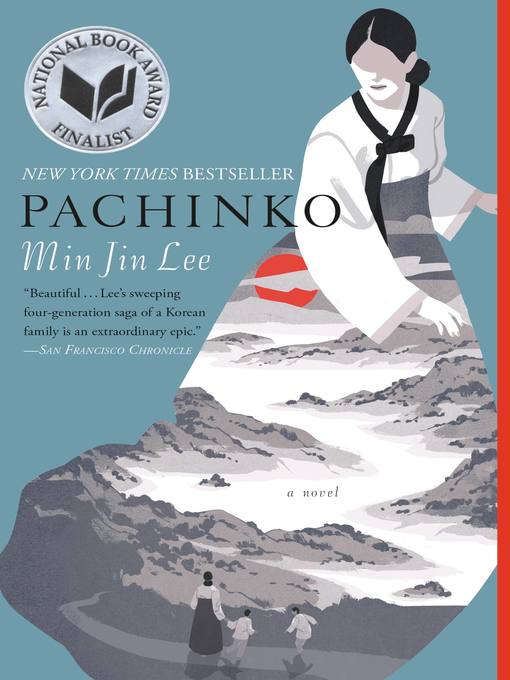
Pachinko
کتاب های مرتبط
- اطلاعات
- نقد و بررسی
- دیدگاه کاربران
نقد و بررسی

November 21, 2016
Lee’s (Free Food for Millionaires) latest novel is a sprawling and immersive historical work that tells the tale of one Korean family’s search for belonging, exploring questions of history, legacy, and identity across four generations. In the Japanese-occupied Korea of the 1910s, young Sunja accidentally becomes pregnant, and a kind, tubercular pastor offers to marry her and act as the child’s father. Together, they move away from Busan and begin a new life in Japan. In Japan, Sunja and her Korean family suffer from seemingly endless discrimination, and yet they are also met with moments of great love and renewal. As Sunja’s children come of age, the novel reveals the complexities of family national history. What does it mean to live in someone else’s motherland? When is history a burden, and when does history lift a person up? This is a character-driven tale, but Lee also offers detailed histories that ground the story. Though the novel is long, the story itself is spare, at times brutally so. Sunja’s isolation and dislocation become palpable in Lee’s hands. Reckoning with one determined, wounded family’s place in history, Lee’s novel is an exquisite meditation on the generational nature of truly forging a home.

Starred review from October 15, 2016
An absorbing saga of 20th-century Korean experience, seen through the fate of four generations.Lee (Free Food for Millionaires, 2007) built her debut novel around families of Korean-Americans living in New York. In her second novel, she traces the Korean diaspora back to the time of Japan's annexation of Korea in 1910. "History has failed us," she writes in the opening line of the current epic, "but no matter." She begins her tale in a village in Busan with an aging fisherman and his wife whose son is born with a cleft palate and a twisted foot. Nonetheless, he is matched with a fine wife, and the two of them run the boardinghouse he inherits from his parents. After many losses, the couple cherishes their smart, hardworking daughter, Sunja. When Sunja gets pregnant after a dalliance with a persistent, wealthy married man, one of their boarders--a sickly but handsome and deeply kind pastor--offers to marry her and take her away with him to Japan. There, she meets his brother and sister-in-law, a woman lovely in face and spirit, full of entrepreneurial ambition that she and Sunja will realize together as they support the family with kimchi and candy operations through war and hard times. Sunja's first son becomes a brilliant scholar; her second ends up making a fortune running parlors for pachinko, a pinball-like game played for money. Meanwhile, her first son's real father, the married rich guy, is never far from the scene, a source of both invaluable help and heartbreaking woe. As the destinies of Sunja's children and grandchildren unfold, love, luck, and talent combine with cruelty and random misfortune in a deeply compelling story, with the troubles of ethnic Koreans living in Japan never far from view. An old-fashioned epic whose simple, captivating storytelling delivers both wisdom and truth.
COPYRIGHT(2016) Kirkus Reviews, ALL RIGHTS RESERVED.

Lee's powerful National Book Award finalist begins with an unmarried pregnant girl in Korea and traces the effects of her choices through generations of her family while taking the reader through 70 years of Japanese and Korean history. (LJ 10/15/16)
Copyright 1 Library Journal, LLC Used with permission.
Set in Korea and Japan, Lee's follow-up to her acclaimed debut, Free Food for Millionaires, is a beautifully crafted story of love, loss, determination, luck, and perseverance. Sunja is the only surviving child of humble fisherman Hoonie (himself born with a cleft palate and twisted foot) and wife YangJin in the early 1900s. Losing her father at age 13, Sunja appears to be a dutiful daughter by working at the boardinghouse with her mother, only to surprise the family three years later by becoming pregnant by an older married man with children. She saves face when a minister at the boardinghouse, ten years older than Sunja, offers to marry her and take her to Japan with him to start a new life. What follows is a gripping multigenerational story that culminates in 1989. There are surprising twists, especially when Sunja crosses paths with her former lover while living in Japan. VERDICT Lee's skillful development of her characters and story lines will draw readers into the work. Those who enjoy historical fiction with strong characterizations will not be disappointed as they ride along on the emotional journeys offered in the author's latest page-turner. [See Prepub Alert, 8/8/16.]--Shirley Quan, Orange Cty. P.L., Santa Ana, CA
Copyright 2016 Library Journal, LLC Used with permission.

Lee's debut, Free Food for Millionaires, was named one of the year's top ten novels by multiple venues. This second work, a big hit at both BEA and ALA, opens in early 1900s Korea with unwed Sunja rescued from the shame of her pregnancy by an offer of marriage that takes her to Japan. What follows is one family's seesawing fortunes over generations. With a 150,000-copy first printing.
Copyright 2016 Library Journal, LLC Used with permission.

Starred review from
Lee's powerful National Book Award finalist begins with an unmarried pregnant girl in Korea and traces the effects of her choices through generations of her family while taking the reader through 70 years of Japanese and Korean history. (LJ 10/15/16)
Copyright 1 Library Journal, LLC Used with permission.
September 15, 2016
Lee's debut, Free Food for Millionaires, was named one of the year's top ten novels by multiple venues. This second work, a big hit at both BEA and ALA, opens in early 1900s Korea with unwed Sunja rescued from the shame of her pregnancy by an offer of marriage that takes her to Japan. What follows is one family's seesawing fortunes over generations. With a 150,000-copy first printing.
Copyright 2016 Library Journal, LLC Used with permission.

























دیدگاه کاربران